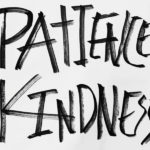
I found Katsenelson, an investment advisor, husband and father, who blogs on music and life and has written the best-seller Soul in the Game (which I read), urges us to not miss today.
I think I “missed” many days…for years… as I rushed from pillar to post running a business. I am not saying I wasted my time, but I seldom stopped to treasure being alive.
I am going to do what he suggested. What about you? It might help us realize we are alive from the time we roll out of bed until we roll back in at night.
Sending love,
Vicki
Each Day is a Separate Life
By Vitaliy Katsenelson
We are horrible with our time. Our initial reaction is to blame it on Netflix and Facebook. I get it – but at the same time, I don’t.
Seneca lived almost 2,000 years ago. Then, pictures of friends were carved in stone, not posted to Instagram. History was written in real time in the Roman Colosseum so it could later be dramatized on Netflix. But even then, according to Seneca’s first letter in the book Moral Letters, “The largest portion of our life passes while we are doing ill, a goodly share while we are doing nothing, and the whole while we are doing that which is not to the purpose.”
Even then, Seneca was really upset about how people wasted their time: “What man can you show me who places any value on his time, who reckons the worth of each day, who understands that he is dying daily? For we are mistaken when we look forward to death; the major portion of death has already passed. Whatever years lie behind us are in death’s hands.”
His advice: “Hold every hour in your grasp. Lay hold of today’s task, and you will not need to depend so much upon tomorrow’s. While we are postponing, life speeds by.”
Think about this when you waste your next hour on cat videos on Facebook: “Nothing is ours, except time. We were entrusted by nature with the ownership of this single thing, so fleeting and slippery that anyone who can will oust us from possession.”
Seneca struggled with managing his time, too, and he admits it: “I cannot boast that I waste nothing, but I can at least tell you what I am wasting, and the cause and manner of the loss…”
And this is the part I really want my kids to read. Seneca writes:
“I advise you, however, to keep what is really yours; and you cannot begin too early.”
After reading Seneca, it is impossible not to want to retake control of the most important, irreplaceable gift you are given as a birthright – time. But how do you do this? I borrowed my practical solution from Seneca: “Begin at once to live and count each separate day as a separate life.”
“Each separate day as a separate life.” What a brilliant idea. A life bookended by sunrise and sunset. A day is a perfect, meaningful measuring unit. I can look at each day and evaluate how I spent it. If I achieve mostly perfect days, then they’ll spill into a perfect life.
Every January most of us set New Year’s resolutions. Though we don’t think about it that way, we really treat each year as Seneca’s separate life. Except that a year is so long that we forget about our New Year’s resolutions by March.
Each day as a separate life has many advantages. Every single day you have feedback that allows you to make micro course corrections. It focuses you on process versus outcome. If you want to lose weight, instead of setting a New Year’s resolution to lose 30 pounds, set daily resolutions – eat so many calories per day, exercise so many minutes per day, etc. (I can see that setting a goal to exercise so many days a week may be better, and that is okay.) None of us knows how long we have been given on this Earth. But I am certain we will be given more days than years.
The perfect day doesn’t depend on stoplights turning green on my way to work, or a rental car company giving me the car I ordered, or great weather, or the people I come in contact with bending to my will. Epictetus provides great guidance here: “Don’t hope that events will turn out the way you want; welcome events in whichever way they happen: this is the path to peace.”
This gives you an opportunity to live this day as if it was your last (and one day it will be). Imagine if this day was your last day. What would you pay more attention to (your loved ones) and what would you pay less attention to (a rental car mix-up)?
The goal is not to change our activities but to change our state of mind as we carry out those activities. You don’t want to stop thinking about or planning for tomorrow; instead, as you think about tomorrow, remember to appreciate today. Or as Seneca puts it, “Hurry up and live”.
At the end of each day, as the sun sets, I evaluate the day.
Did I spend my time wisely on good problems? When I was with my family and friends, was I present; did I pay attention to them? Was I kind? Did I leave the world better than I found it? If life presented Stoic quizzes (red stoplights, rental car problems etc.), did I pass them? How close did I come to practicing tranquility in motion? (I’ll discuss this in a bit.) Did I interrupt any habits I am establishing? Did I incur any new bad habits? (I am looking for a pattern here. Ordering nachos twice in a row could be the beginning of a new bad habit.)
This brings me to the daily journal. We can examine our “separate life” at the end of each day.
Here is what Seneca wrote: “When the light has been removed and my wife has fallen silent, aware of this habit that’s now mine, I examine my entire day and go back over what I’ve done and said.”
He took this opportunity to reexamine that day’s life, see if he made mistakes, forgive himself for these mistakes, and prescribe himself a corrective course of action. “I conceal nothing from myself, I pass nothing by. I have nothing to fear from my errors when I can say: ‘See that you do not do this anymore. For the moment, I excuse you.’”
Reviewing your day presents an opportunity to learn from your mistakes and correct them. For instance, today I debated politics with a friend for an hour. As I look at that hour, the time was completely wasted, and I won’t get it back. Neither of us changed the mind of the other. In fact, we got a little bit annoyed with each other. The next time the topic of politics comes up, I should let my friend speak his mind and not offer a rebuttal, hoping that the conversation will take a better turn. If it doesn’t, I’ll let him know that I don’t talk politics.
Daily journaling – in the morning, evening, or both – can be a life-changing habit. In addition to being a record of your day and thus your life, the journal provides a canvas for self-reflection and self-examination. I promise you it is a lot cheaper than a therapist. It is a safe place for you to be honest with yourself. Just like meditation, it allows you to identify and address thoughts that are spinning around in your subconscious.
This has another benefit: If you do this before you go to sleep, you’ll sleep better (it worked for me).
Seneca was not the only Stoic who kept a diary. Most of what we know about Marcus came from a personal diary he wrote to himself, which he called Meditations. This was a safe place for Marcus to have a conversation with himself – being an emperor is a very hazardous occupation.
How much to write? Do your best. If you struggle, one sentence may be enough. Just as in creating any new habit, consistency is more important than quantity or even quality.
(…)
As Socrates said, “The unexamined life is not worth living.”






























